The Young Academy Groningen welcomes eight new members
After summer, the Young Academy Groningen will again welcome eight new members. Their research covers a wide variety of topics, including autism, compromise in political philosophy, oncology in primary care, prevention and management of chronic kidney disease, legal arguments and justification in international legal theory and philosophy, and the influence of popular culture on our world.
The eight researchers will be officially installed as members on 25 September 2025. During their five-year membership, they will collaborate with our current members on projects that focus on science policy, interdisciplinarity, public engagement, and diversity and inclusion.
The new YAG members are:
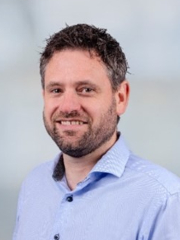
Daan Brandenbarg (Faculty of Medical Sciences)
I am Daan Brandenbarg, assistant professor and clinical epidemiologist in theDepartment of Primary and Long-term Care at the UMCG. My research focuses onimproving cancer care within primary care. With over 800,000 people in theNetherlands living with or beyond cancer, general practitioners play a vital role acrossthe entire patient journey—from supporting treatment decisions to long-term survivorship care.
I lead the Oncology in Primary Care research group, a multidisciplinary team ofepidemiologists, GPs, psychologists, and sociologists. Together, we address thephysical, psychological, and social challenges faced by cancer survivors. We studyhow communication between primary and secondary care may be improved, howfollow-up care may be more effectively shared, and how the long-term effects ofcancer treatment may be better managed. Our aim is to empower GPs to deliver high-quality, patient-centred care and contribute to a more sustainable and integratedhealthcare system.
I’m excited to join the Young Academy Groningen, because I believe academicresearch should be both collaborative and connected to society. I look forward tofostering dialogue between disciplines and communities, supporting early-careerresearchers, and helping build platforms for interdisciplinary exchange that addresspressing health and other challenges.
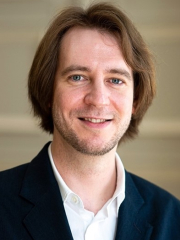
Kostia Gorobets (Faculty of Law)
My name is Dr Kostia Gorobets and I’m an assistant professor of Philosophy of Law. I joined the University of Groningen in 2017 as a PhD researcher and quickly found myself surrounded by a passionate and dedicated academic community. My research specializes in the philosophy of international law, with a focus on its authority and normativity. Since September 2024, I have been working on a research project titled Alternative Legalities: How the Russian Invasion of Ukraine Fractures International Law, funded by the Dutch Research Council (NWO). This project aims to critique an alternative version of international law that Russia seeks to construct in order to justify and legitimize its invasion of Ukraine.
My motivation to join the Young Academy Groningen is twofold. First, like many of my colleagues at the UG, I see the current governmental policy of reducing education funding as one of the most critical threats to Dutch academia in decades. I believe that the YAG can play an important role in helping the University develop policies and coordinate actions to counter these harmful financial decisions. Second, my research requires interaction across various fields within the humanities and social sciences. Given its strong commitment to interdisciplinarity, the YAG is uniquely positioned to overcome the compartmentalization of research that often results from a faculty-based institutional structure.
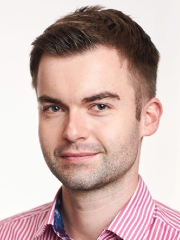
Björn Hoops (Faculty of Law)
I was born and raised in northern Germany, spent a year volunteering in South Africa and then studied Law in Germany and the Netherlands. As a Professor of Private Law and Sustainability at the University of Groningen, I investigate which legal rules hinder the energy transition and how these rules can be amended to make it easier to save energy or to generate sustainable energy. I focus on the insulation of buildings and the generation of green energy, for example through solar panels on roofs. Another focus of my research is how citizens can stimulate the energy transition by collectively generating green energy and how private law could make this easier.
For my research, I have also spent a lot of time abroad—including two years in Italy thanks to a Marie Curie fellowship—and have become a bridge-builder between different legal systems and cultures. Within the YAG, I want to work towards a University with a focus on internationalization, where everyone, newcomers and long-standing staff alike, can flourish.
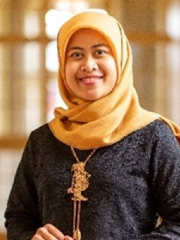
Novika Purnama Sari (Faculty of Behavioural and Social Sciences)
My name is Novika Purnama Sari and I’m an assistant professor at the Department of Clinical and Developmental Neuropsychology. I have a strong passion for autism research, particularly within the context of developing countries such as Indonesia. My journey into this field began during an internship at an inclusive school, where I witnessed first-hand the challenges faced by parents raising autistic children. These experiences deeply shaped my ambition to empower these families.
Learning about the Young Academy Groningen’s (YAG) mission — to inspire research, inform policy, and promote diversity and inclusion in academia — has been truly motivational. I’m especially drawn to YAG’s commitment to promoting inclusive academic spaces and its role in shaping research-informed policy. I hope to contribute to the YAG by initiating mentorship and networking opportunities for underrepresented scholars and by supporting community outreach activities, particularly those aimed at promoting neurodiversity and inclusion in education and academic settings.
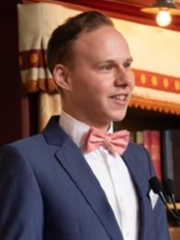
Felix Pot (Faculty of Spatial Sciences)
Coming from a small town in the north of the Netherlands, I saw how transport can both bridge and deepen urban-rural divides. Fast and efficient mobility has created new opportunities, but it has also contributed to the decline of local services and the increase in car dependency in rural communities. As sustainability and social justice become central to the policy agenda, transport challenges are no longer just about congestion. They are about how we share the benefits and burdens of spatial transformations linked to climate adaptation, the energy transition, and demographic change.
It’s concerning that many people in regions at the forefront of these transitions increasingly feel disconnected from science. It shows that transport inequalities reflect deeper divides in trust and understanding. These divides hamper the well-informed public debate we urgently need to face complex and moral societal challenges.
With a foot on both sides of that divide, I want to help close the gap. Early-career researchers are well placed to nurture an academic culture that shows science is on people’s side. Academics have a responsibility to make research accessible and relevant to society by looking beyond disciplinary boundaries and beyond the University. By being visible in the region, working with practitioners, and giving residents a voice, I aim to initiate research within the Young Academy Groningen that is relevant and connected to the people and places we ultimately serve.
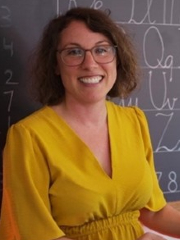
Élise Rouméas (Campus Fryslân)
As an assistant professor of Political Philosophy at Campus Fryslân, I research – and practise – the art of compromise. Most of my work revolves around resolving conflict in the context of deep disagreement. My research has recently taken a digital turn, with key collaborations in the fields of digital democracy and artificial intelligence, to which I contribute through my expertise in democratic theory. In addition, I have held various managerial positions, including Programme Director of the BSc Global Responsibility & Leadership and interim Head of the Department of Global & Local Governance.
I am delighted to be joining the YAG and hope to contribute through my experience in academic leadership at an early-career stage. Drawing on my expertise in collective decision-making, I am passionate about identifying fair procedures, conducting due processes, and developing good management practices. I look forward to contributing to ongoing reflections on good governance—particularly at a time when governance is high on the agenda.
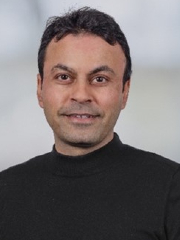
Priya Vart (Faculty of Medical Sciences)
I’m an assistant professor in the Department of Clinical Pharmacy and Pharmacology at the UMCG. I received a PhD from the UMCG and did a postdoc at Johns Hopkins University. My research focuses on improving care for traditionally underserved populations, including older adults, individuals with low health literacy, and those from socioeconomically disadvantaged backgrounds. I’m also involved in quantifying the burden of chronic diseases to raise public awareness. In addition, I have a strong interest in facilitating and creating opportunities for the professional development of early-career researchers.
The Young Academy Groningen offers an exciting platform to connect with peers from diverse disciplines, foster interdisciplinary collaboration, and engage in dialogue around science policy, outreach, and academic culture. I am particularly drawn to the Academy’s mission to support early-career researchers, bridge the gap between science and society, and promote research that has societal relevance. Through the Academy, I hope to actively contribute to and learn from initiatives that advance opportunities for early-career researchers, foster meaningful public engagement, and reinforce the role of academia in addressing societal challenges.
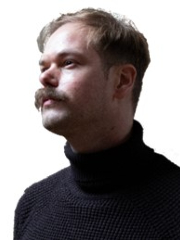
Lars de Wildt (Faculty of Arts)
I’m an assistant professor at the Research Centre for Media and Journalism Studies at the Faculty of Arts. I study how popular entertainment media construct our contemporary worldviews. After all, almost everything that we know of the world comes through screens, from what we think of far-away cultures to what we think of politics, truth, violence, and justice. In my Veni project, I study China's influence on the largest cultural industry in the world: video games.
I have been a researcher and visiting researcher at the universities of Leuven, Heidelberg, Montréal, Bremen, Deakin, Tampere, and Jyväskylä. As a member of the Young Academy Groningen, I’m convinced that good research is not just interdisciplinary and collaborative, but above all international. At the YAG, I aim to address the growing problems of academic de-internationalization and defunding.
More news
-
15 September 2025
Successful visit to the UG by Rector of Institut Teknologi Bandung
